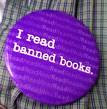I've been a slow reader lately, but I'm very proud of myself because I've been sticking to the TBR list quite closely and reading books that have been on my shelf for way too long.
One of these veterans is A star called Henry by Roddy Doyle. Henry has been waiting since early 2008 to make his acquaintance with me. It was worth it, although I did struggle through it a bit and towards to end I almost felt like giving it up. But then my curiosity to know how it all ended made me continue and I'm glad I did, because it did pick itself up again.
A star called Henry follows the life of Henry Smart, a boy growing up in the early 1900s in Dublin. He is a street urchin who looks much older than he is and who learns quickly how to survive in the dark Dublin alleys. He's smart by name and by nature, always working out the best way to bring food into his and his little brother's mouth.
I was really absorbed by Henry's accounts of his adventures on the streets. One of the most memorable scenes for me happens at this time, when at only 8 or 9 years old, he decides he's going to get himself and his brother an education. So he shows up at a school's door, demanding just that. Here he meets Miss O'Shea, the teacher, another strong, amazing character who you will look forward to meeting again. The time that the two kids spend at the school is short, but very meaningful. It shows Henry the plain injustice of the system and it sets the scene for what comes later: the 1916 Rising and all the hopes of change that will come with it.
The second part of the book jumps straight from Henry being a child to him being a soldier fighting for Ireland at only 14. I was taken aback by this abrupt change of scene, I would have preferred to have followed Henry up to that point. But I got over it quickly as the accounts of the Rising and especially of the battle at the GPO ( the general post office) is so vivid that it takes you all the way back then, as if it was happening now. For someone who lives in Dublin, it was even more exciting. Reading the names of familiar streets being under fire or siege, realising that O'Connell street was actually still called Sackville Street, and that Eason's (a bookshop) was already there (!), were some of the reasons why I was captivated by this section. I also loved that Henry had such a close relationship to famous names like Michael Collins and James Connolly. If it wasn't for the strong language and the explicit sex scenes it would have been a great way to learn history at school.
The story after the rising remains as engaging . It's only when Henry starts being involved with the IRA again and training soldiers for Collins, that I started to doze off. I'm not one for war stories at all. Keep it short and sweet and I'll be yours. Drag it too long and you might loose me.
Also, I didn't like what the war did to Henry. It stripped him of his humanity, like any war would do. For all his cockiness, Henry had been a lovable character. His love for his brother, his charm, his energy, were palpable. But it was sometimes hard to find that Henry beneath the ugliness of what he was doing.
All in all, I'm glad I read it, even though it felt really long. I've learned a lot from it and I've seen a different side to Roddy Doyle's style. A richer, more ambitious way of writing, which worked well in this historical setting. To be honest though, I'll probably won't read the next two in the trilogy. They sound even murkier than this one, and I'm a bit of a softie. So I'll pass.
other reviews:
An adventure in reading
50 books project
Wednesday 25 May 2011
A Star called Henry by Roddy Doyle
Labels:
adult fiction,
irish history,
reviews
Subscribe to:
Posts (Atom)





